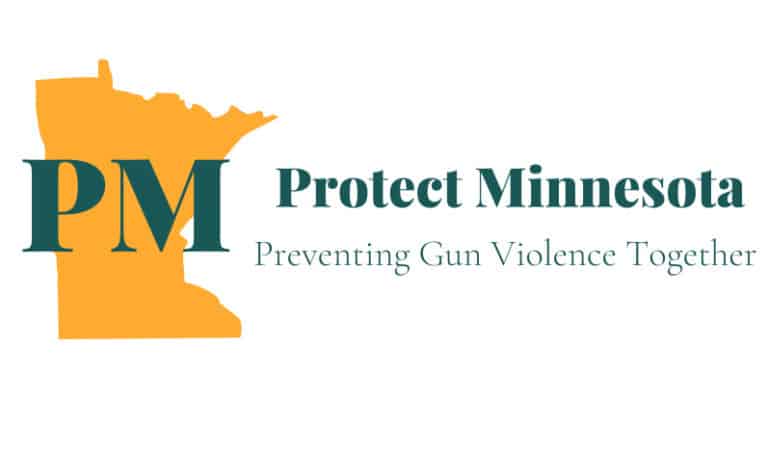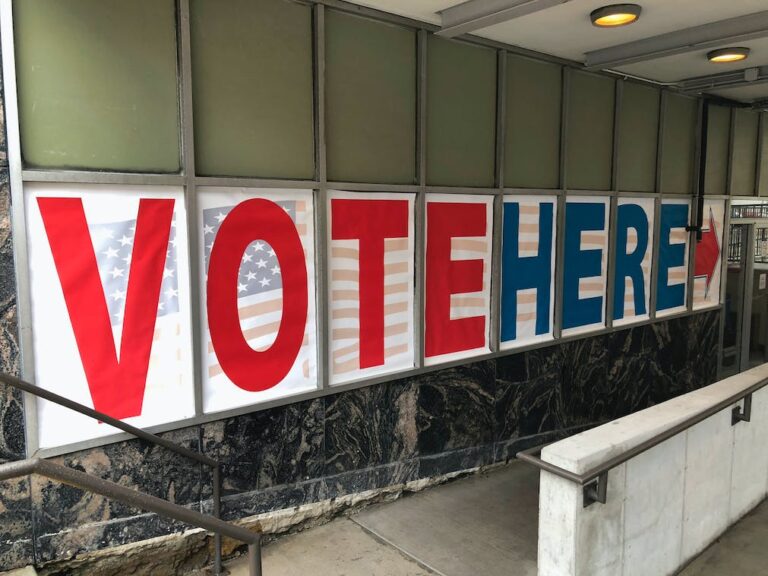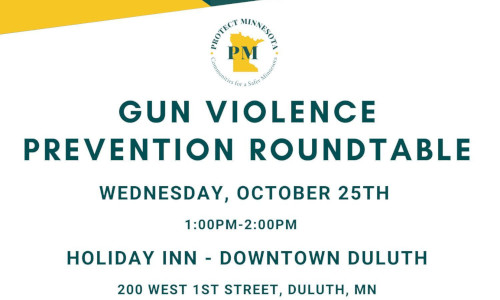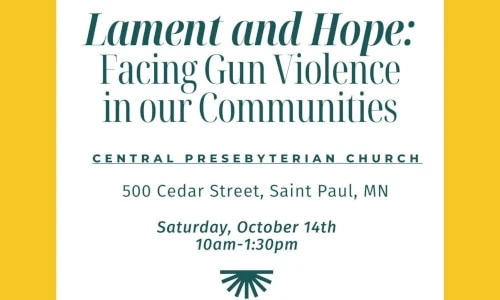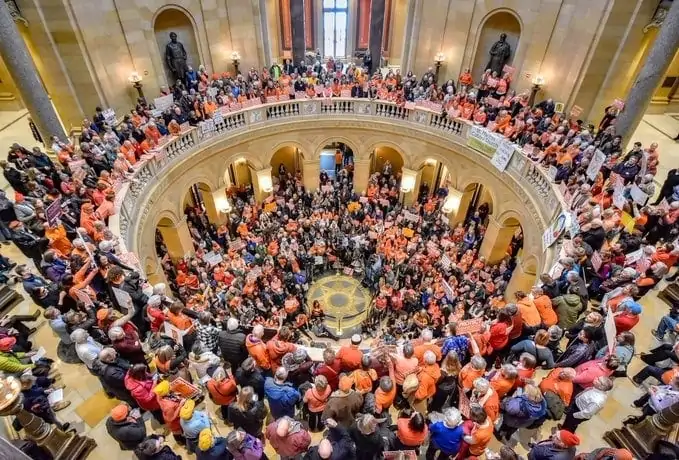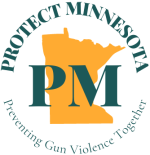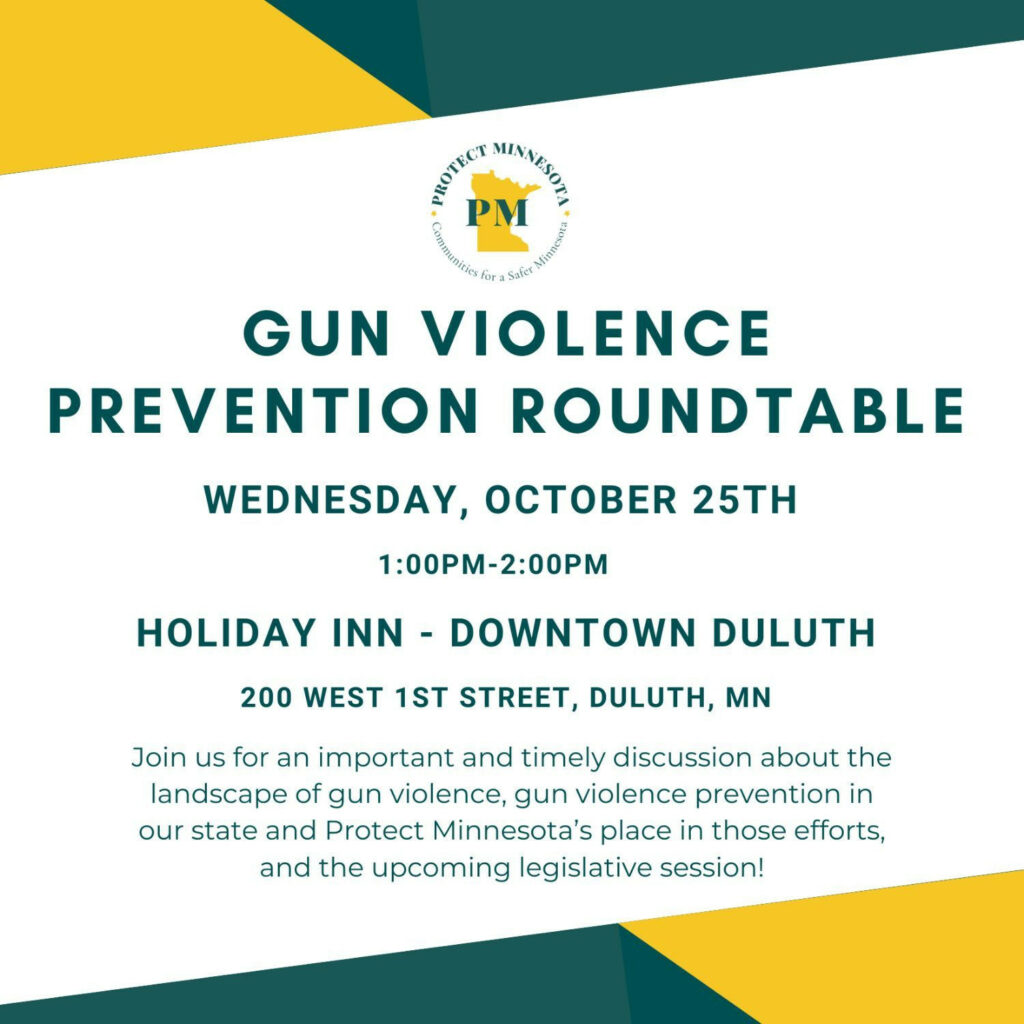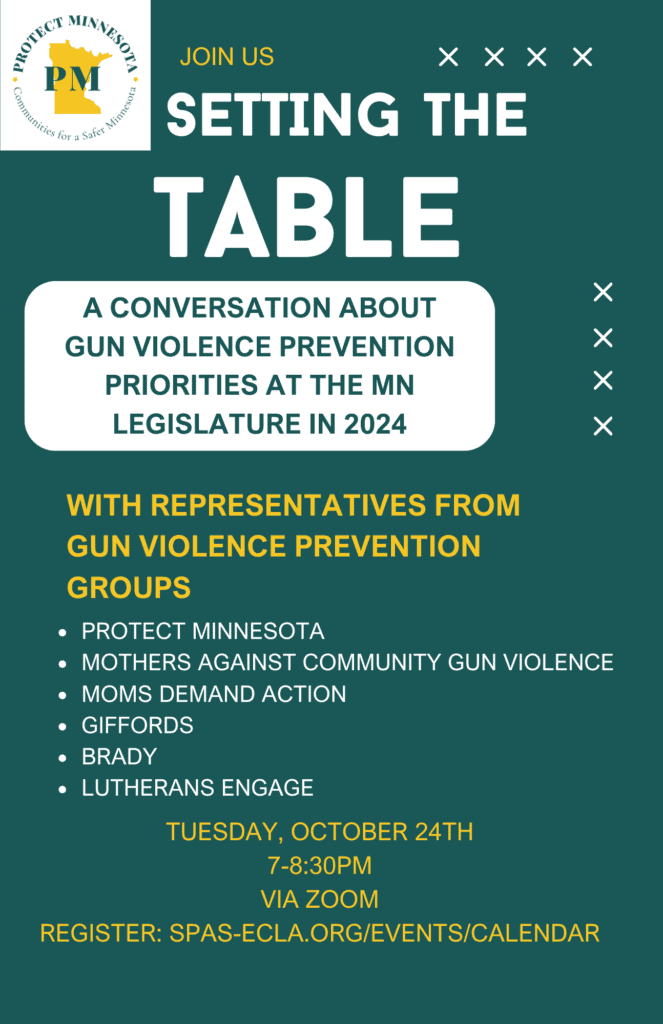As of February 2019
Minnesota CCW Permit (Concealed Carry Weapons Permit)
Individuals who wish to carry a concealed or unconcealed handgun in public in Minnesota must possess a permit to carry. This permit allows the individual to have a handgun in their clothes or on their person, in a motor vehicle, snowmobile or boat. Law enforcement and on-duty adult correctional facility officers are not required to have a carry permit.
The State Department of Public Safety reported that 283,188 Minnesotans had permits to legally carry firearms in public in 2017.
Requirements to get a CCW permit in Minnesota
- Must be at least 21 years of age
- Must complete an application form
- Must not be prohibited from possessing a firearm under Minnesota or Federal law.
- Must not be listed in the criminal gang investigation system
- Must be a resident of the county from which you are requesting a permit, if you reside in Minnesota. Non-residents may apply to any Minnesota county sheriff.
- Must provide certificate of completed authorized firearms training.
Obtaining a CCW permit in Minnesota
Minnesota is a “shall issue” state — one that requires a license to carry a concealed handgun, but where the granting of such licenses is subject only to meeting determinate criteria laid out in the law. The granting authority has no discretion in the awarding of the licenses, and there is no requirement of the applicant to demonstrate “good cause.”
For Minnesota residents, individuals may obtain permits to carry a pistol by submitting an application and other related documentation in person to the sheriff in the county where the applicant resides. Mailed applications are not allowed. Non-residents may apply to any Minnesota county sheriff.
New and renewed permits are valid for five (5) years from the date of issuance. Permits must be renewed at the county sheriff’s office in the county where the applicant currently resides. Out of state permit holders can renew at any sheriff’s office. Applicants for renewal must present evidence that they have received training
in the safe use of a pistol within one year of the date of an original or renewal application.
Emergency permits are valid for 30 days. Emergency permits may be issued by the sheriff if he/she determines that the person is in an emergency situation that may constitute an immediate risk to the safety of the person or someone residing in the person’s household.
Sheriff departments are supposed to submit annual reports to the MN Bureau of Criminal Prevention on permits approved or denied, but not all do. A study of carry permit denials over 10 years conducted by Protect Minnesota showed that only 1.2% of carry applications in Minnesota are denied.
Regulations pertaining to having a CCW permit in Minnesota
The permit holder must have the permit card and a valid driver’s license, state identification card, or other government-issued photo identification in immediate possession at all times when carrying a pistol and must display the permit card and identification document when requested by a peace officer.
Upon request of a peace officer, a permit holder must disclose to the officer whether or not the permit holder is currently carrying a firearm.
A permit holder is required to notify the issuing sheriff’s office within 30 days of a permanent address change. Failure to do so is a petty misdemeanor.
A permit holder is required to notify the issuing sheriff’s office within 30 days of a permanent address change. Failure to do so is a petty misdemeanor. The permit holder may, however, obtain an updated permit at a cost of $10.00. There is a statutory requirement to change the address on your driver’s license within 30 days after changing your residence (171.11).
The permit holder must notify the issuing sheriff’s office within 30 days of having lost or destroyed the permit card. Failure to do so is a petty misdemeanor. The permit holder may obtain a replacement permit card by paying $10.00 to the sheriff.
Minnesota’s Personal Protection Act is a permit to carry law, not a conceal and carry law. The pistol does not need to be concealed, but may be concealed.
Out of state CCW permits valid in Minnesota
Alaska, Delaware, Idaho (Enhanced permit only), Illinois, Kansas, Kentucky, Louisiana, Michigan, New Jersey, New Mexico, North Dakota (Class 1 License only), Rhode Island, South Carolina, South Dakota (Enhanced permit only), West Virginia (Regular permit only).
The West Virginia Regular permit has been added as a valid out-of-state permit because it requires a minimum age of 21 and mandates training that includes live-fire shooting. Nevada has been withdrawn as a similar state because age 21 is no longer the minimum age for all permit applicants. Minnesota law requires all applicants to be at least 21 years old, without exception.
When is a permit to carry not required?
A permit to carry is not required of a person: (Minnesota Statute 624.714 Subd. 9)
- To keep or carry about the person’s place of business, dwelling house, premises or on land possessed by the person a pistol;
- To carry a pistol from a place of purchase to the person’s dwelling house or place of business, or from the person’s dwelling house or place of business to or from a place where repairing is done, to have the pistol repaired;
- To carry a pistol between the person’s dwelling house and place of business;
- To carry a pistol in the woods or fields or upon the waters of this state for the purpose of hunting or of target shooting in a safe area;
- To transport a pistol in a motor vehicle, snowmobile or boat if the pistol is unloaded, contained in a closed and fastened case, gun box, or securely tied package.
Where you can carry with a permit in Minnesota
- State parks
- State and national forests
- Road side rest areas
- Vehicle
- State Capitol
- All areas of the state – except those listed below.
Where can guns be banned
Under Minnesota law, nongovernmental entities such as churches, businesses, private colleges and nonprofit organizations may prohibit the possession of firearms on their premises by posting signage with specific language in accordance with state law. Trespass statutes also allow homeowners to prevent the possession of guns on their property. Law enforcement officers are exempted from these restrictions. (MN
stat.624.714.17)
Where can’t guns be banned
Parking facilities may not restrict the lawful possession of firearms. Landlords cannot prohibit tenants from allowing guns in their businesses or residences. (MN stat.624.714.17)
Where you cannot carry a gun in Minnesota – even with a permit
- Public or private elementary, middle, or secondary school building and grounds
- A child care center while children are present
- School bus
- Portion of a building or facility under the temporary, exclusive control of a public or private school where signs are posted
- Public colleges and universities – may have policy restricting the carrying of weapons on their premises by employees and students while on campus
- Private establishments that have posted a sign banning guns on their premises
- Places of employment, public or private, if employer restricts the carry or possession of firearms by it’s employees
- State correctional facilities
- State hospitals and grounds
- Any jail, lockup or correctional facility
- Courthouse complexes
- Churches and parking area if posted
- Offices and courtrooms of the Minnesota Supreme Court and Court of Appeals
- Any state building
- Any place where the carrying of firearms is prohibited by Federal Law.
Federal off-limit to carry areas – even with a permit
- Federal Courthouses
- Federal Buildings
- Any building owned, leased or rented by the Federal Government. This includes buildings in National Forests which are property of the Federal Government. There is no Federal Law that prohibits carry in National Forests. States control the carrying of firearms in National Forests in their state.
- Federal Prisons
- U.S. Army Corps of Engineers – The Corps builds and runs flood control and navigation Dams. The Corps has jurisdiction over the Dam Site and usually all waters backed up by the dam. Carry anywhere on Corps property is illegal. Firearms can be unloaded and secured in a vehicle while on Corps Property.
- National Cemeteries
- Military Bases. Firearms are forbidden on military bases even unloaded and secured in a vehicle. Carry not allowed. Some have shooting clubs. You can take firearms onto the Base to shoot if allowed by the base. Certain rules/regulations must be met before bringing firearms onto a Military Compound. Check at each Military Post for specific rules on Shooting Clubs.
- Rented Offices–any part of any building that the Federal Government has rented for office space or work force etc. Just their offices or the part of the building they have control over. You can carry in the rest of the building if state or local laws allow.
- Amtrak will have a system in place to check firearms/Ammo in (Amtrak Firearms Policy).
- Post Office – Postal regulations prohibit the possession of firearms in their buildings and in their parking lots or any property they own.
2018 Minnesota State Statute
624.714 CARRYING OF WEAPONS WITHOUT PERMIT; PENALTIES.
Passages pertinent to banning guns and penalties for carrying guns where banned.
Subdivision 1. [Repealed, 2003 c 28 art 2 s 35; 2005 c 83 s 1]
Subd. 1a. Permit required; penalty. A person, other than a peace officer, as defined in section 626.84, subdivision 1, who carries, holds, or possesses a pistol in a motor vehicle, snowmobile, or boat, or on or about the person’s clothes or the person, or otherwise in possession or control in a public place, as defined in section 624.7181, subdivision 1, paragraph (c), without first having obtained a permit to carry the pistol is
guilty of a gross misdemeanor. A person who is convicted a second or subsequent time is guilty of a felony.
Subd. 17.Posting; trespass. (a) A person carrying a firearm on or about his or her person or clothes under a permit or otherwise who remains at a private establishment knowing that the operator of the establishment or its agent has made a reasonable request that firearms not be brought into the establishment may be ordered to leave the premises. A person who fails to leave when so requested is guilty of a petty misdemeanor. The fine for a first offense must not exceed $25. Notwithstanding section 609.531, a firearm carried in violation of this subdivision is not subject to forfeiture.
(b) As used in this subdivision, the terms in this paragraph have the meanings given.
(1) “Reasonable request” means a request made under the following circumstances:
(i) the requester has prominently posted a conspicuous sign at every entrance to the establishment containing the following language: “(INDICATE IDENTITY OF OPERATOR) BANS GUNS IN THESE PREMISES.”; or (ii) the requester or the requester’s agent personally informs the person that guns are prohibited in the
premises and demands compliance.
(2) “Prominently” means readily visible and within four feet laterally of the entrance with the bottom of the sign at a height of four to six feet above the floor.
(3) “Conspicuous” means lettering in black Arial typeface at least 1-1/2 inches in height against a bright contrasting background that is at least 187 square inches in area.
(4) “Private establishment” means a building, structure, or portion thereof that is owned, leased, controlled, or operated by a nongovernmental entity for a nongovernmental purpose.
(c) The owner or operator of a private establishment may not prohibit the lawful carry or possession of firearms in a parking facility or parking area.
(d) The owner or operator of a private establishment may not prohibit the lawful carry or possession of firearms by a peace officer, as defined in section 626.84, subdivision 1, paragraph (c), within the private establishment or deny the officer access thereto, except when specifically authorized by statute. The owner or operator of the private establishment may require the display of official credentials issued by the agency
that employs the peace officer prior to granting the officer entry into the private establishment.
(e) This subdivision does not apply to private residences. The lawful possessor of a private residence may prohibit firearms, and provide notice thereof, in any lawful manner.
(f) A landlord may not restrict the lawful carry or possession of firearms by tenants or their guests.
(g) Notwithstanding any inconsistent provisions in section 609.605, this subdivision sets forth the exclusive criteria to notify a permit holder when otherwise lawful firearm possession is not allowed in a private establishment and sets forth the exclusive penalty for such activity.
(h) This subdivision does not apply to a security guard acting in the course and scope of employment. The owner or operator of a private establishment may require the display of official credentials issued by the company, which must be licensed by the Private Detective and Protective Agent Services Board, that employs the security guard and the guard’s permit card prior to granting the guard entrance into the private establishment.
Subd. 18.Employers; public colleges and universities. (a) An employer, whether public or private, may establish policies that restrict the carry or possession of firearms by its employees while acting in the course and scope of employment. Employment related civil sanctions may be invoked for a violation.
(b) A public post secondary institution regulated under chapter 136F or 137 may establish policies that restrict the carry or possession of firearms by its students while on the institution’s property. Academic sanctions may be invoked for a violation.
(c) Notwithstanding paragraphs (a) and (b), an employer or a post secondary institution may not prohibit the lawful carry or possession of firearms in a parking facility or parking area.
